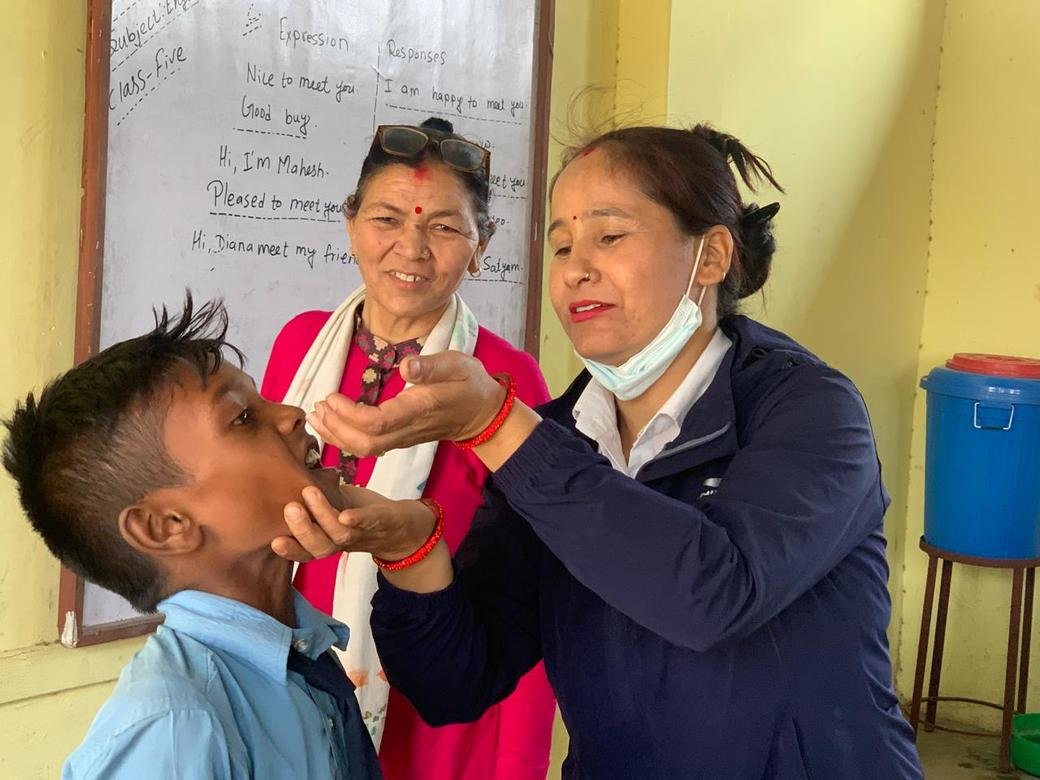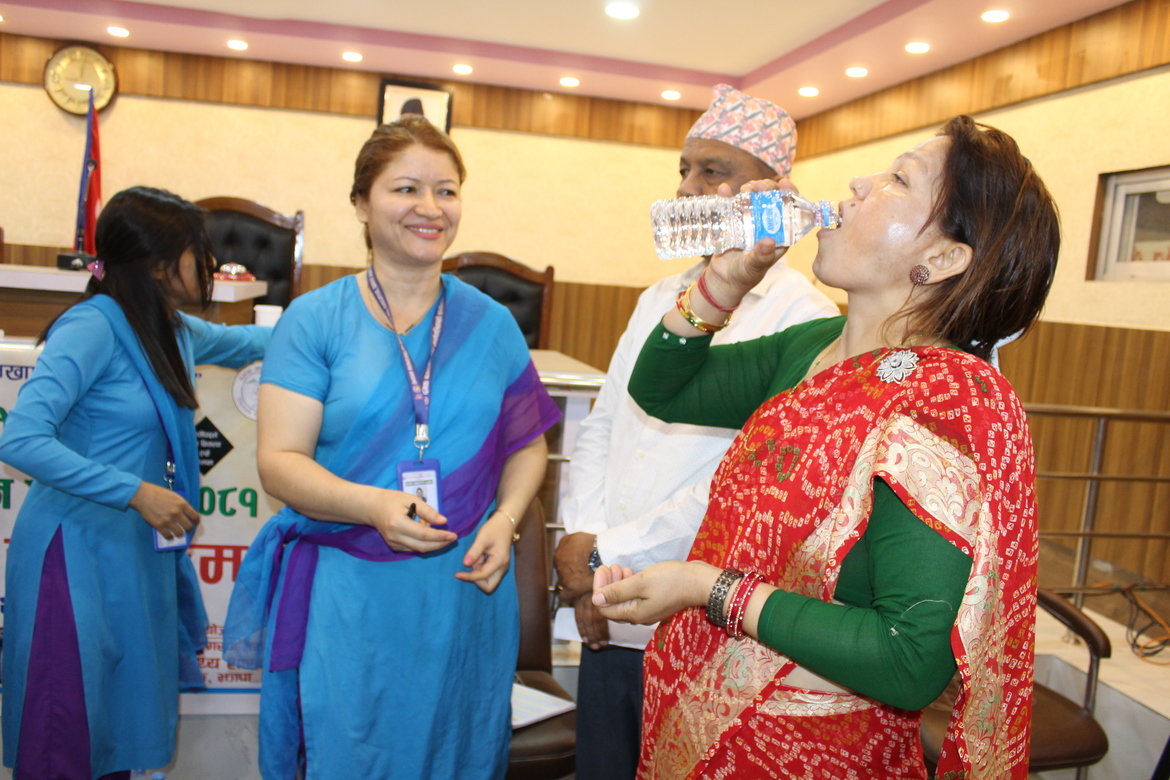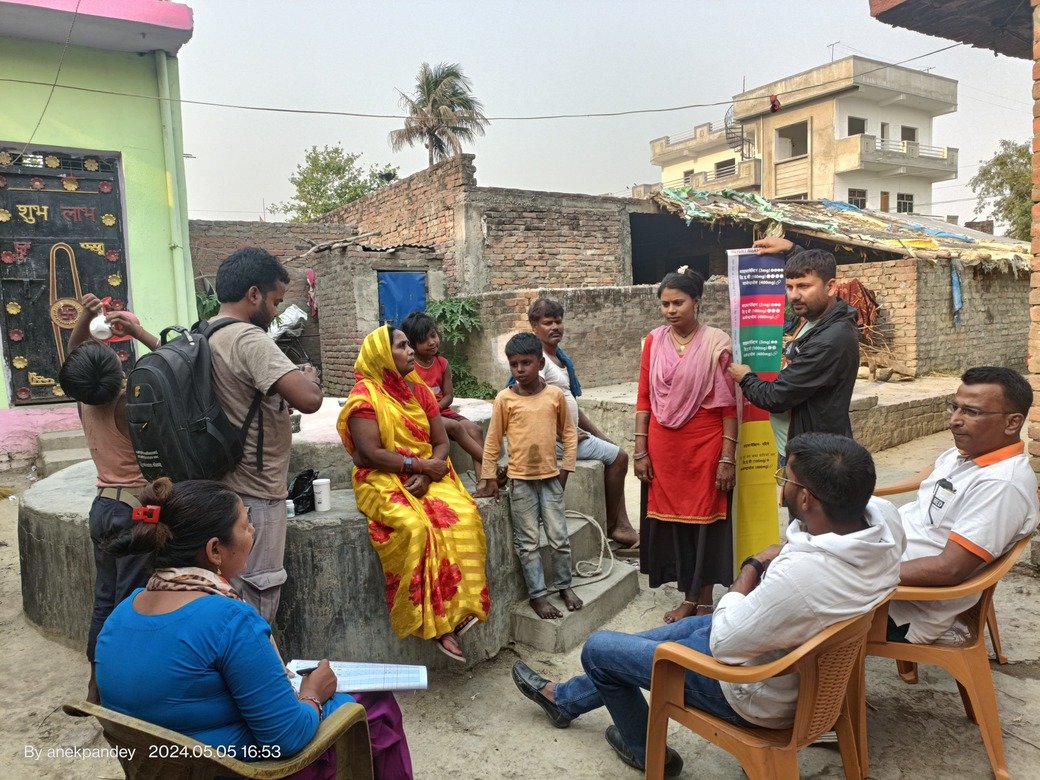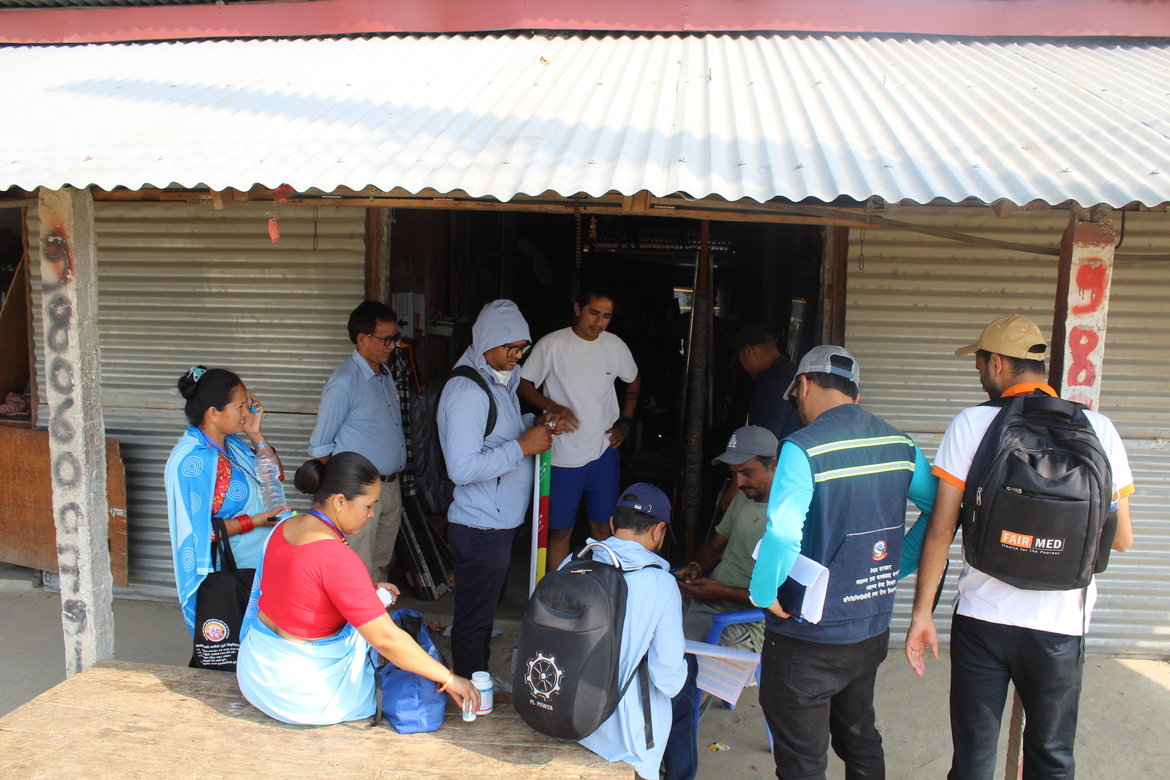Battling Lymphatic Filariasis in Nepal: A Comprehensive Effort in Kapilvastu and Jhapa
In 2024, Nepal conducted an extensive Mass Drug Administration (MDA) campaign to combat Lymphatic Filariasis (LF) in Kapilvastu and Jhapa, two districts with alarmingly high LF prevalence rates. Despite previous efforts, the Epidemiological Disease Control Division (EDCD) found a high LF prevalence during a 2022 Re-Pre TAS survey, prompting the introduction of a three-drug regimen—IDA (Ivermectin, Diethylcarbamazine, and Albendazole). The campaign, supported by numerous partners, aimed to curb LF transmission and increase community engagement and drug compliance.
FAIRMED Nepal contibuted as a key development partner, providing vital support throughout the campaign. FAIRMED's involvement included participating in national and micro-level planning meetings, coordinating with federal, provincial, and local governments, and allocating human resources for technical backstopping and quality assurance. The organization also developed and distributed IEC materials, organized community sensitization events, and monitored the campaign to ensure timely and accurate reporting.
Implementation and Achievements
- In Kapilvastu, the campaign achieved an impressive 83.4% epidemiological coverage district-wide, with Maharajgunj Municipality reporting the highest at 92%. Extensive community mobilization and door-to-door counseling were pivotal in enhancing drug compliance.
- In Jhapa, over 30,000 people consumed medication in the presence of the FAIRMED team. Community sensitization efforts reached approximately 5,000 people, and the campaign achieved 84% epidemiological coverage.
The campaign revealed that mobilizing local influencers and providing proper counseling significantly improve drug compliance. Sensitizing school teachers and community leaders also helps motivate larger populations. The sweeping method of drug administration proved more effective. Recommendations for future campaigns include scheduling around weather conditions, engaging local stakeholders for better problem identification, utilizing media promotions to reach wider communities, and implementing awareness programs, especially in specific communities like Tharu and Muslim groups. Making the promotion of MDA cards mandatory across all municipalities is also advised.
In conclusion, FAIRMED's rigorous support, in coordination with the Nepalese government and other partners, has been instrumental in the fight against LF in Kapilvastu and Jhapa.



